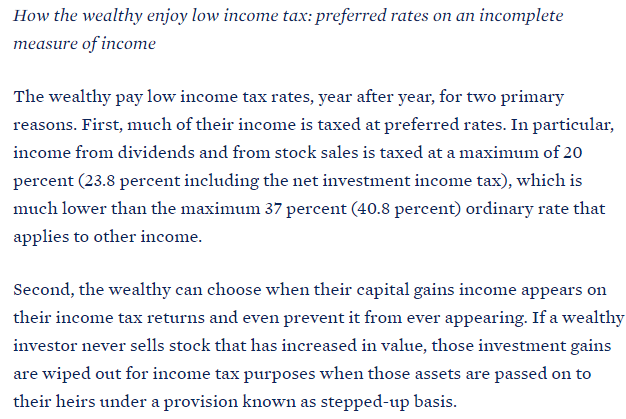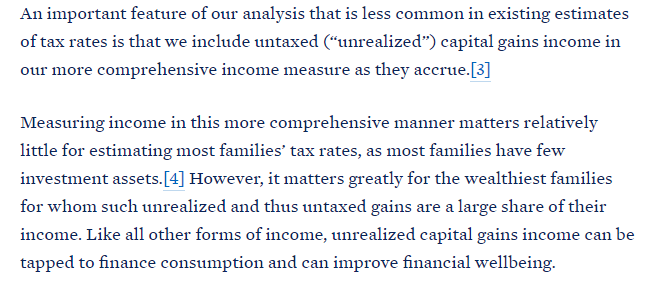
The credibility revolution in economics.
https://twitter.com/NobelPrize/status/1447502041467793408
Short version of the prize: We used to dig into the data, say "correlation ain't causation," quickly forget we said that, and make a bunch of causal-ish statements based on data that really couldn't support such claims.
Then David, Josh and Guido said: Hang on.
Their response wasn't the usual destructive "we can't make causal claims" stuff, but rather entirely constructive: Here's a toolkit and set of approaches to help you make credible causal claims.
Their response wasn't the usual destructive "we can't make causal claims" stuff, but rather entirely constructive: Here's a toolkit and set of approaches to help you make credible causal claims.
And so the next generation of empirical economists focused on analyzing credible "natural experiments."
Economists often can't run true experiments. But nature has a way of running a sort-of experiment. And those can help you make causal claims.
Economists often can't run true experiments. But nature has a way of running a sort-of experiment. And those can help you make causal claims.
Josh's paper on the draft is an example. One way to figure out the effects of military service on outcomes would be to run an experiment, randomly giving some people the "treatment" of serving.
But it's impossible and unethical to run that experiment...
But it's impossible and unethical to run that experiment...
So Josh said: Isn't getting a low Vietnam draft number a bit like that experiment -- of randomly being assigned to military service. And aren't folks with high draft numbers a bit like the treatment group.
So he developed tools to analyze the results of this "natural experiment"
So he developed tools to analyze the results of this "natural experiment"
And those tools have revolutionized the work that applied microeconomists have done, on everything from crime to family to labor markets to development. It's been a revolution in our lifetimes, and it's been a privilege to have a ring-side seat.
The credibility revolution has had less impact in macro, and that's because it's difficult to think of experiments that also account for the spillover effects from one person or one market to the other. Those "general equilibrium" effects are absolutely central to macro.
And that's why today's Nobel, while well deserved, will be a bit controversial. To some economists, the credibility revolution led economists to abandon economic theory (even as it has emphasized more careful statistical theorizing).
Another version of this critique is that the focus on credibility has led some economists to look under the lamppost, focusing on the questions we have the "natural experiments" to answer well, rather than the questions that most need to be answered.
The right answer, of course, is that the best tools to use depend on the question you're asking, and David, Josh and Guido have added really important tools to the economic toolkit. We can do credible causal analysis now, and that need not crowd out theory, or general equlibrium.
An aside: I don't think I've ever seen the Nobel committee describe particular fractions of a prize for each laureate. Maybe they think they can credibly estimate the contributions of each (dad joke).
No quibble with it; just an observation.
No quibble with it; just an observation.
And today, it's hard not to notice that Alan Krueger is no longer with us. Alan would surely have shared this prize. He was so interesting, so exciting, and he made this economic revolution so much fun. He may have been the most creative of all of these guys. Rest in peace, Alan.
Orley Ashenfelter, who by some measures kicked off the credibility revolution, was surely a bit unlucky to not be included here. The Princeton IR section had a huge influence here: Orley started the revolution, and hired David and Alan, and trained Josh.
The truly notable thing about today's Econ Nobel is that it's a prize for work that has been felt across so many fields. The credibility revolution they kicked off has transformed empirical work in political science, sociology, criminology, demography, public health, the law, etc
This year's prize reaffirms a trend we've seen for years: If you want to win the Prize, you've got to win the next generation of graduate students. Teach them tools that they can use to push back the frontier. Each of these guys has trained a veritable army of graduate students.
Unrelated true story: The last time I saw Guido Imbens was at Legoland.
There were a lot of people who underestimated Guido Imbens for a long time. The work he was doing was always great; he just got caught in the crosshairs of a sometimes acrimonious methodological war.
https://twitter.com/florianederer/status/1447511755526221824?t=MYVUbI_q4t-1xnxu8Wi3yQ&s=19
Also, not all great economists do well on their first grad school exams:
https://twitter.com/danielgott/status/1447520445222297600
At first I thought this was a cute theory; now I can't get it out of my head. There's clearly a prize for modern labor economics (that's the Card [and Krueger] prize). And there's a second prize for causal inference methods (that's Angrist & Imbens).
https://twitter.com/sarahmrose/status/1447525445377925124
Also, cute pic if you ever wanted to see David Card in his robe.
https://twitter.com/NobelPrize/status/1447517204430434308?t=Bbs4TcZelKdWaiezqHMYiw&s=19
• • •
Missing some Tweet in this thread? You can try to
force a refresh





